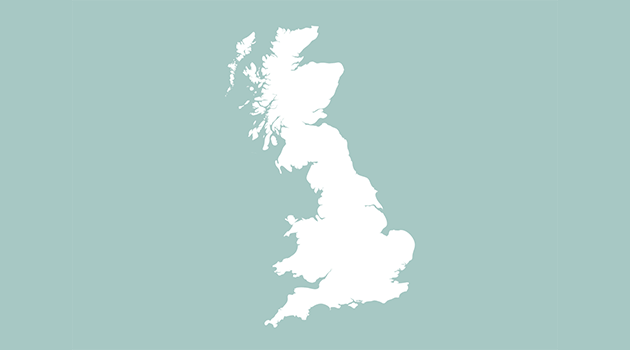Should the UK bet the house on a net-zero investment drive as a wholesale means of boosting and levelling up the national economy?
That is the question at the heart of a new report from thinktank the Resolution Foundation – and the answers come with a distinct note of caution.
Published on 23 May, Growing Clean heralds the remainder of the 2020s as a dramatic shift to a new phase of the UK’s journey towards net zero.
In the coming decade, the report says, large-scale reductions in emissions will be required from buildings and surface transport – in addition to continued, rapid decarbonisation in electricity supply and other areas.
“This will require major, economy-wide changes that will have significant impacts on households and firms across the UK,” the report notes.
Funding surge
Investment and innovation will be fundamental to achieving those aims. The Climate Change Committee has estimated that a further £13.5bn of investment will be required this year – rising to more than £50bn by 2030 – to meet the UK’s net zero targets.
Amid that funding surge, around 85% of UK decarbonisation up to 2035 will involve the use of low-carbon technologies or fuels, either alone or in combination with behavioural change in business and society. As such, the report says, “Both the invention of new technologies and the deployment of existing ones will be important.”
In that context, the report quotes a recent estimate from the International Energy Agency indicating that, over the next three decades, almost half of all emissions reductions will come “from technologies that are currently at the demonstration or prototype stage”.
The question begs: will this wave of investment in net-zero projects and solutions have what it takes to sweep the entire UK economy along with it – thereby acting as a cure-all for the Levelling Up agenda?
Some commentators in the sustainability field have already suggested that “given the UK’s current low levels of investment, investing and innovating our way to net zero will address the UK’s chronic underinvestment in innovation, capital and skills”.
Alternative hubs
It is here that the report sounds its note of caution: “Net zero alone is not a silver bullet for reversing the UK’s economic stagnation and addressing inequalities: domestic implementation of climate policies and targets does not necessarily lead to domestic economic benefits or ensuring that these, and costs, are shared fairly.”
Instead, report co-author Anna Valero stresses in an accompanying Foundation statement: “Smart net-zero investment should be embedded in a wider economic strategy – especially as it could have the additional benefit of bolstering the government’s Levelling Up agenda.”
For example, the Foundation points out, key locations outside London and the south east may have the greatest potential as hubs of clean growth. While national innovation tends to be concentrated within the ‘golden triangle’ between Oxford, Cambridge and London, the Tees Valley and Durham – together with Derbyshire and Nottinghamshire – are in fact the areas with the UK’s highest share of green patents.
Those areas – which, compared to the rest of the UK, underperform in productivity terms – are therefore best placed to gain from the expansion of clean technologies: a field in which the UK has already demonstrated effective performance.
As such, the report’s authors agree, a successful net-zero investment strategy that sets out to strategically target the relevant business sectors could play a significant role in supporting the government’s Levelling Up plans.
Shaping policy
With all that in mind, the report notes, it is “not realistic” to assume that the UK can rely solely upon the private sector to choose the smoothest, cheapest path towards net zero.
Rather, it says: “The required innovation – which is radical, and in many cases involves the transformation of entire systems – will not happen at the necessary scale and pace without incentives, regulation, government spending and participation from civil society.”
Therefore, UK policymakers who would be responsible for designing those interventions as part of a new economic strategy would need to consider two key points: how best to target investments and shape policies to promote the development of current (and potential future) competitive strengths; and how to avoid the pitfalls of attempting to pick winners.
If such a strategy were executed correctly, the report adds, the UK of 2030 could have higher living standards, plus improved health and wellbeing, supported by firms innovating and adopting cutting-edge clean technologies and business practices that are fit for the mid-21st century.
Reacting to the report, ICAEW Climate Change Executive Sarah Reay says: “While the urgency to reach net zero is certainly becoming apparent for business and government alike, the road to get there is going to be bumpy. As the report emphasises, the capital required to develop clean technology is either unavailable, or still being directed to dirty industries. The transition to net zero must be a just one – that is, it must benefit everyone across civil society, not just those at the top.”
Reay adds: “Sitting at the heart of businesses, firms and government bodies across the land, ICAEW Chartered Accountants have a pivotal role to play in decarbonising the economy and levelling up the UK. They are the trusted advisers – able to apply their skills and knowledge to provide the business case for investing in a cleaner future, looking not only at short-term gains, but at long-term returns that are both profitable and beneficial to society.”
Recent articles
Levelling up: making it work
The Levelling Up agenda is hugely ambitious, incorporating everything from infrastructure to education and skills, private investment to public procurement. Many factors must align in order to make a real difference.




